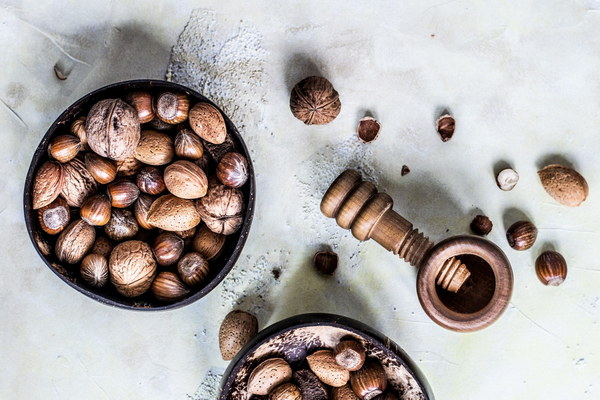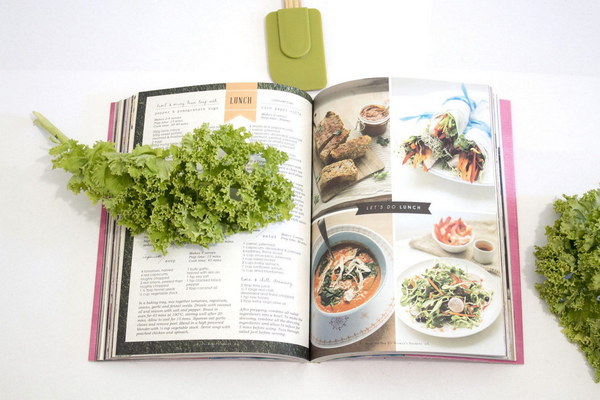Natural Paths to Lung and Intestinal Detoxification A Guide to Clearing the Body's Inner Channels
In the fast-paced modern world, taking care of our health is more crucial than ever. One of the most overlooked aspects of health is the detoxification of the lungs and intestines, which play a vital role in our overall well-being. Here’s a comprehensive guide on how to clear the body’s inner channels, promoting lung and intestinal health.
Understanding Lung and Intestinal Detoxification
Before diving into the methods, it’s essential to understand why lung and intestinal detoxification are important. The lungs are responsible for oxygenating the blood and removing carbon dioxide, while the intestines are the primary site for digestion and nutrient absorption. When these organs become congested or polluted, it can lead to a range of health issues, including fatigue, respiratory problems, and digestive disorders.
1. Deep Breathing Exercises
Deep breathing exercises are a simple yet effective way to improve lung function. Practices such as pranayama (breath control) and diaphragmatic breathing can help clear out the lungs by increasing oxygen flow and expelling stale air.
- Pranayama: Begin with a few minutes of simple breathing exercises to calm the mind and focus on the breath. Inhale deeply through the nose, filling the lungs completely, and then exhale slowly through the mouth.
- Diaphragmatic Breathing: Lie down or sit comfortably with your hands on your abdomen. Inhale deeply, allowing your stomach to push out against your hands, and exhale gently, pulling your stomach in.
2. Herbs and Supplements
Certain herbs and supplements can support lung and intestinal health by acting as natural detoxifiers.
- Mullein: This herb is known for its ability to soothe the respiratory system and expel mucus.
- Turmeric: A powerful anti-inflammatory, turmeric can help reduce inflammation in the lungs and intestines.
- Probiotics: These beneficial bacteria help maintain a healthy gut flora, which is essential for proper digestion and immune function.
3. Proper Diet
A diet rich in fiber, antioxidants, and probiotics can support both lung and intestinal health.
- Fiber-Rich Foods: Foods like beans, whole grains, and vegetables help move waste through the intestines more efficiently.

- Antioxidant-Rich Foods: Berries, green leafy vegetables, and nuts are packed with antioxidants that can help protect the lungs and intestines from oxidative stress.
- Probiotic-Rich Foods: Yogurt, kefir, and fermented foods like sauerkraut and kimchi can promote a healthy gut environment.
4. Hydration
Staying hydrated is crucial for both lung and intestinal health. Water helps to thin mucus, making it easier to expel from the lungs, and it also aids in the digestion process.
- Aim to drink at least 8 glasses of water per day.
- Adding a slice of lemon or cucumber to your water can enhance its taste and provide additional health benefits.
5. Exercise
Regular physical activity can improve lung capacity and promote a healthy digestive system.
- Cardiovascular Exercise: Activities like walking, running, or cycling can increase lung capacity and improve circulation.
- Abdominal Exercises: Strengthening the abdominal muscles can enhance digestion and prevent constipation.
6. Stress Reduction
Chronic stress can impact both the lungs and intestines, so finding ways to relax is crucial.
- Mindfulness Meditation: Regular meditation can help reduce stress and promote a sense of calm.
- Yoga: Combining physical postures with breath control and meditation, yoga can be a holistic approach to lung and intestinal health.
Conclusion
Detoxifying the lungs and intestines is a multifaceted process that requires a combination of lifestyle changes, diet, and self-care practices. By incorporating these natural methods into your daily routine, you can support the health of these vital organs and improve your overall well-being. Remember, it’s never too late to start taking care of your body’s inner channels, and the benefits can be life-changing.



![Celebrity Beauty Secrets How [Celebrity Name]'s Favorite Moisturizer Keeps Her Skin Flawless!](http://img.bluepurple.cn/a/养生/325/Celebrity-Beauty-Secrets-How-Celebrity-Names-Favorite-Moisturizer-Keeps-Her-Skin-Flawless.jpg)





